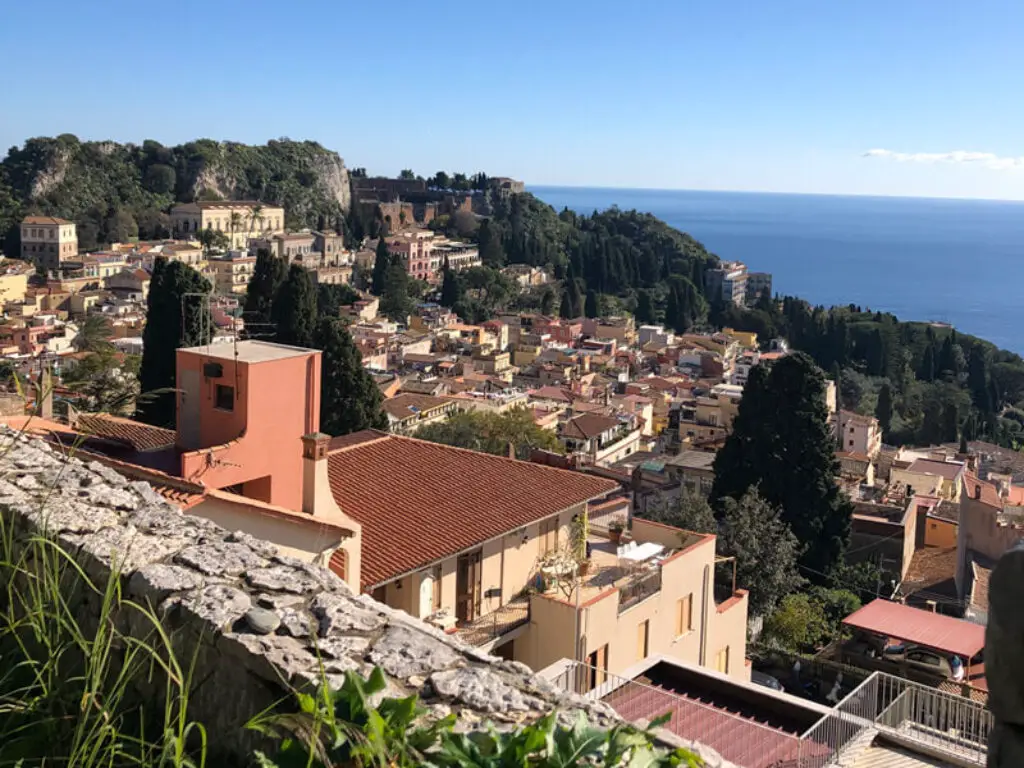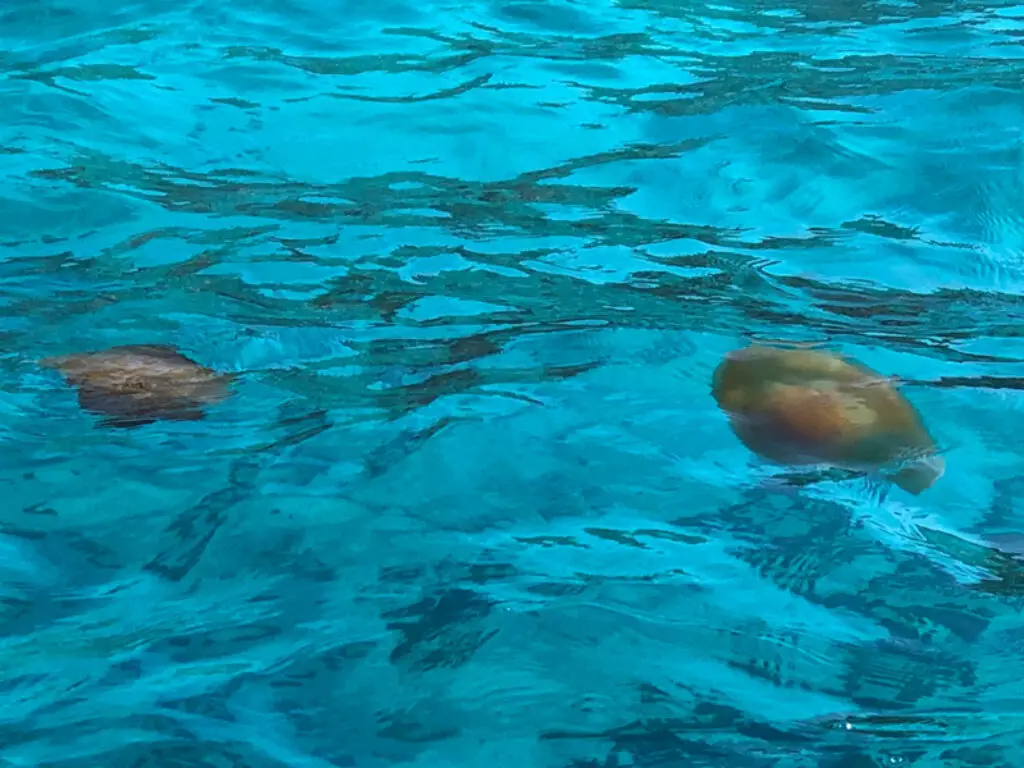Mosquitoes in Sicily: Insights and Bite Prevention
Like everywhere around the world except in extreme polar regions, you will find mosquitoes in Sicily. Mostly they are just a nuisance. Mosquito bites in Sicily usually cause mild irritation, but in some cases they can cause more severe allergies. Additionally, authorities have recorded cases of mosquito-borne disease.
Sicily has recorded locally acquired dengue fever but remains free from other mosquito-borne diseases. In 2022 there were 18 cases of dengue, accounting for 2.5% of all cases in Italy. Mainland Italy also recorded cases of malaria, chikungunya and west nile virus in select localities, but Sicily has not recorded any instances of these diseases.
It is good to note that there are not many recorded cases of mosquito-borne diseases in all of Italy. However with Italy, including Sicily, experiencing warmer weather and people travelling to all parts of the world, mosquito-borne diseases could become more prevalent.
Below is more general information, what to look out for and tips.
Mosquito Season
Mosquito season in Sicily, is generally during the warmer months of the year, from late April or May through September or even October. This is when temperatures are higher and conditions are more favourable for mosquito breeding.
During this period, mosquitoes are more active, and their populations tend to increase. This is because there is more standing water (breeding sites) available and warmer temperatures, which accelerate their life cycle.
However in some warmer years, you can on rare occasion come across mosquitoes during winter time.
Types of Mosquitoes in Sicily
There are about 63 different species of mosquitoes in Sicily. Some of the most common include:
- Asian Tiger Mosquito (Aedes albopictus): This species is not native to Sicily and is known for its aggressive biting behaviour. It is mostly black with white stripes.
- Common House Mosquito (Culex pipiens): This species is brown in colour and is native to the region and hence widespread. It is often found in urban areas.
- Common Malaria Mosquito (Anopheles maculipennis): While malaria is not a significant concern in Sicily anymore, this species is still found in the region.
Most mosquito species are generally more active at dawn and dusk like the Common House Mosquito. However some species are day time biters like the Asian Tiger.
What Diseases do Mosquitoes Carry in Sicily?
There are recorded cases of mosquito-borne diseases in Italy as well as Sicily, but not many.
Since Sicily is humid and warmer than Northern Italy, you would assume that it is a more favourable environment for mosquitoes to breed. However, it turns out that parts of northern Italy provide a better breeding ground, even though temperatures are cooler. As a result, there are less mosquitoes spreading disease in Sicily than in the mainland.
The Asian Tiger is a vector for diseases such as dengue fever and chikungunya. On the other hand, the Common House Mosquito is known to carry diseases like west nile virus.
Mainland Italy has seen cases of chikungunya, dengue, malaria and west nile virus. However Sicily has only seen a select few cases of dengue fever and nothing else.
Preventing Mosquito Bites
There are different methods to keep mosquitoes at bay, some are more effective than others. By using one method or several you can make sure you remain bite free.
While indoors you make use of window insect screens if they are available. They will prevent mosquitoes from entering into your room or property.
Another effective approach is to use air conditioning indoors, which helps control mosquito presence effectively. Even if mosquitoes are locked inside your bedroom with you, if you switch on the ac, they will not bother you.
Outdoors, you can use citronella candles which offer some degree of mosquito control. However, I have never found them to be that effective against mosquitoes. Personally I find them the least effective method to keep mosquitoes away.
To minimise mosquito bites, you can wear clothing that fully covers the skin. Although you may not like the idea, if you are travelling during summer you might feel uncomfortable in the hot weather. In this case, opting for light-coloured clothing is better. This is especially since Asian Tiger mosquitoes are attracted to darker colours.
Additionally, you can use a repellent that contains a high amount of DEET like Jungle Formula. Unlike regular repellents, they are effective against both common mosquitoes and Asian Tigers, providing up to 9 hours of protection. This is especially useful in Sicily because the Asian Tiger mosquitoes in Sicily has spread dengue fever.
Additionally Jungle Formula does not have the metallic smell that other repellents with high amount of DEET have, and it’s 90ml perfect for carry on luggage. However you should note that this repellent is only suitable for individuals aged 12 years and over.
Treating Mosquito Bites
Ideally you should use preventative measures to avoid mosquito bites altogether. However if you do get bitten, you should resist the urge to scratch the affected area.
Sometimes it’s easier said than done. However if you do manage not to scratch, the bite will irritate you less and subside more quickly.
Additionally, you may find relief by using After Bite which is available on Amazon and select pharmacies. It is specially formulated to soothe and calm irritated skin for effective relief from itching and discomfort from insect bites. It comes in a portable bottle that can easily fit in your pocket so you can carry it with you anywhere you go.
If the bite gets more irritated or lingers or you experience additional symptoms like a fever then you should seek advice from a doctor.
Dengue Fever in Sicily
When Europe experiences higher than average temperatures during summer months, there is a higher incidence of dengue. 2022 and 2018 where 2 such years with more recorded cases.
In 2022, Europe had 1,112 cases of Dengue fever. Unfortunately Italy had 700 of those cases of locally acquired dengue. However only 2.5% of reported cases were in Sicily, so there is less risk of contracting it while holidaying on the island.
Most of the time, you do not need to think about applying repellent for mosquitoes in Sicily. However during warmer summers you could consider applying it as a precaution. Since dengue is spread by the Asian Tiger mosquito, a repellent with a high amount of DEET is the best protection you can get.
On average, the fatality rate for dengue fever is around 1%. However, this rate is significantly higher (up to 20%) for severe cases.
People with dengue do not experience it in the same way, and some may even be asymptomatic. Symptoms of dengue fever include a high fever, severe headache, severe joint and muscle pain, skin rash, nausea and vomiting, fatigue, mild bleeding from the nose, or gums or easy bruising.
More severe symptoms may include severe abdominal pain, persistent vomiting, severe bleeding like blood in urine, stools and from the gums and organ failure.
Malaria
Back in the late 19th Century, Italy faced a widespread malaria epidemic. Approximately one-third of its land, which was home to around 10% of the population was affected by Malaria.
Malaria was particularly prevalent in low Veneto, Tuscany (Maremma), Southern provinces, and the islands of Sardinia and Sicily. The number of malaria cases reached 2 million in a country with a total population of about 30 million. However, the annual death toll ranged between 15,000 to 20,000.
The situation started to turn around in the first half of the 20th Century. This is when malaria in Europe experienced a steady decline, thanks to a combination of enhanced economic conditions and regular implementation of control measures. By 1970 malaria was eradicated throughout Italy.
Today, Italy is again seeing cases of malaria. There are around 700 yearly cases, most of which are imported. However in 2017, 7 were locally spread which concerned authorities. However most cases of malaria are recorded in Italy and not Sicily.
Chikungunya
In some years, Chikungunya is reported in Italy, like in 2007 and 2017. However, so far cases were only recorded in a small handful of locations in mainland Italy. Sicily had no recorded cases whatsoever.
Chikungunya is rarely fatal, some may have milder symptoms or even be asymptomatic. A small minority of people with the virus may experience debilitating symptoms that can affect their daily activities.
Chikungunya fever is characterised by a high fever, severe joint pain (arthralgia), headache, muscle pain, fatigue, and a rash. Some individuals can experience particularly severe joint pain that may last for weeks or even months, leading to prolonged discomfort and debilitation.
West Nile Virus
Since 1999 the west nile virus has spread to every continent bar Antartica. The good news is that in Europe the problem is not wide spread. In fact, in Italy by September 2022 there were 144 cases of west nile virus with 10 resulting in death.
The issue is more acute in northern Italy especially in the low lying Veneto area. Here is where 5 out of 10 people died of west nile virus. There were no recorded bases of west nile virus in Sicily.
Fewer than 1% of individuals infected with the virus progress to experience the most severe symptoms. Additionally the mortality rate for the virus is as low as 1 in 1,000 infected individuals.
Anyone that develops mild symptoms (around 20% of the infected population), the virus resolves within a few days to a few weeks. Its similar to recovering from a typical fever.
Symptoms of west nile virus include fever, headache, body aches, fatigue, skin rash and swollen lymph nodes. In more severe cases people can experience a stiff neck, confusion or disorientation and muscle weakness.
Related Articles

Discover Sicily with Kids: Travel Tips, and Family-Friendly Accommodations.

Avoid Jellyfish in Sicily: Info, Live Bays and Treatment